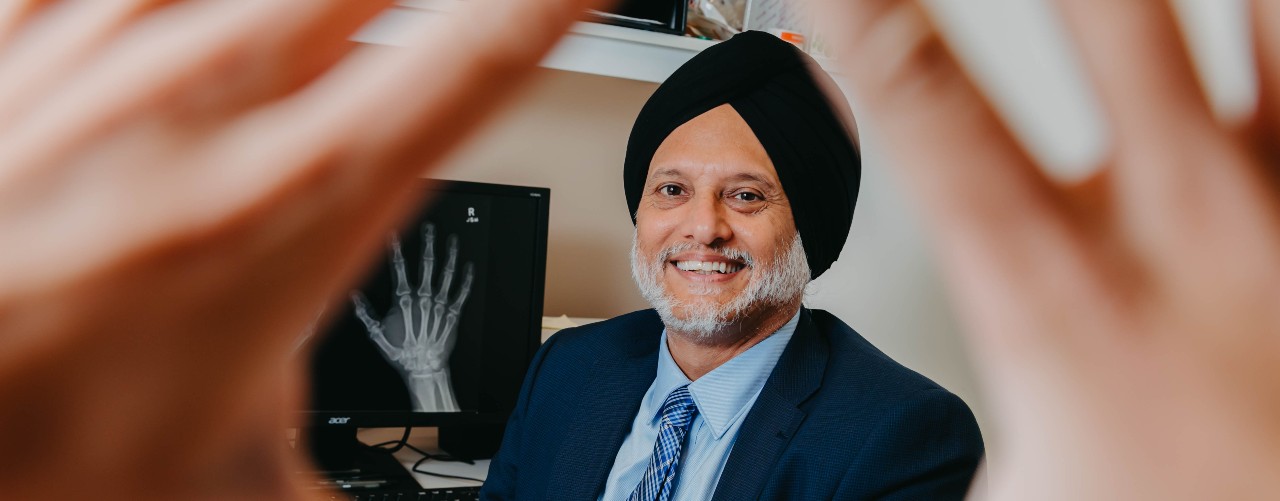Little things in life can matter the most
Prof Randy Bindra

The fingertip is a sensitive organ that keeps us in touch with our surroundings, can tell hard from soft, hot from cold and can tap a text message to a friend - so, while fingertip injuries may seem innocuous, if they heal wrong, they can seriously affect hand function.
This is why hand surgeon, Randy Bindra, goes to great lengths to preserve them.
Professor Bindra said it was important to get specialist treatment for finger injuries, because if they do not heal correctly they can cause lifelong problems with loss of sensibility, painful hypersensitivity, cold intolerance and abnormal nail growth.
“With the right care, finger injuries, including the tip, can be salvaged and restored - without it, these injuries can become a nightmare,” he said.
“In the past, fingertip injuries would simply be treated with amputation. If the finger was crushed, it would be cut off, or at least cut back to make it shorter; but in my experience, preservation of length, contour, sensation and function is of the utmost importance especially for patients who use their hands for fine tasks at work or play a musical instrument as a hobby.
“The good news is, due to improved surgical techniques and new medical devices, such as artificially engineered skin, we can grow back lost tissue on fingers that would otherwise need amputation, so it is important to get specialist treatment as quickly as possible.
“Hand trauma is not life-threatening and treatment for a fingertip injury may be delayed in busy trauma centers where major injuries take priority or in smaller country hospitals, where specialist care and techniques may not be available.”
The majority of hand injuries occur at the workplace and accidents continue to happen in spite of strict occupational health and safety standards. Prof Bindra said, fortunately, people injured at work could seek the opinion of a specialist hand surgeon.
“It is important for people being treated under WorkCover to know they can request approval for private hospital care by a specialist, which can mean the difference between finger preservation and amputation,” he said.
“Injuries can occur not only at work but even at home or the playground. Finger tips are prone to injury as they are the last to pull out of harms’ way. They can get crushed in a door, cut on a shard of glass or struck when catching a ball."
Dr Bindra recommends after an injury patients support the finger by wrapping it with neighbouring ones, cover the hand with a clean bandage or cloth and elevate the hand to minimise bleeding. If part of the skin or end of the finger is completely cut off, place it in a clean water-tight bag and place the bag in ice water for transportation to the hospital.
“People tend to take fingertips for granted, overlooking how much we use them," he said.
"I make every effort to maximise the restoration of normal anatomy and work with hand therapists to restore function. Ultimately you want the fingertip to be sensitive enough so you can feel what you are touching, yet strong enough so you can pinch something without it being painful.
“Achieve that and you have attained the best outcome.”
For more information contact:
Gold Coast Private Hospital
Specialist Suites, 14 Hill Street
Southport, QLD 4215
T: 0755 300 770
Web: www.randybindra.com.au
